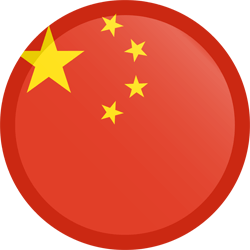cross-posted from: https://lemmy.sdf.org/post/34611532
The European Union has categorically ruled out any revival of the stalled Comprehensive Agreement on Investment (CAI) with China, with a top EU official stating there is “absolutely no intention” to reinitiate negotiations, even as Beijing signals openness to rekindling economic ties.
Marjut Hannonen, head of trade at the EU delegation in Beijing, reportedly made the remarks during a panel discussion marking 50 years of diplomatic relations between the EU and China, reported the Hong Kong-based South China Morning Post (SCMP). Dr Sari Arho Havrén from UK’s Royal United Service Institue posted on social media, citing Hannonen: "“[It] is already challenging enough to try to make progress on existing problems so there is absolutely no intention on the EU side to do anything on CAI which is there somewhere in the closet.”
Hannonen said EU-China relations had “steadily deteriorated” over the past two decades, pointing to increasing market barriers and what the EU sees as unfair trade practices from China.
[…]
The CAI, finalised in 2020 but never officially signed, was once hailed as a landmark economic agreement to deepen investment flows between Brussels and Beijing. But the deal hit a deadlock in 2021 after the European Parliament froze it in response to retaliatory sanctions from China over the EU’s criticism of alleged human rights abuses in Xinjiang.
[…]
Since the deal fell through, Chinese officials have lobbied quietly to restart the dialogue, including overtures from Fu Cong, China’s former ambassador to the EU. Last month, China lifted sanctions on five Members of the European Parliament and the subcommittee on human rights—a move widely seen as an olive branch.
Yet EU officials remain unconvinced.
[…]
Among the most pressing concerns voiced by the EU is China’s industrial overcapacity, particularly in sectors such as electric vehicles (EVs), steel, and solar panels. European leaders argue that state subsidies in China allow firms to export products at artificially low prices, undercutting local industries and creating a growing trade imbalance.
[…]
In a keynote speech at the conference, former French PM Michel Barnier also emphasized that China’s “distortive policies” would lead to industrial overcapacity. He also urged China to use its leverage over Moscow to "encourage Russia to end this aggression in Ukraine and respond to Ukraine’s proposal for a full ceasefire of hostilities."
“These challenges are not only economic issues but also have a social and political nature as our public opinions turn an increasingly negative eye to free trade because ongoing imbalances threaten European industries and ultimately European jobs,” Barnier said.
“This trend is fueling populism in European countries, including France, and can only have bad consequences for us Europeans but also for our trade and relations with China against which populist will inevitably turn against, as they did in the United States.”
[…]

